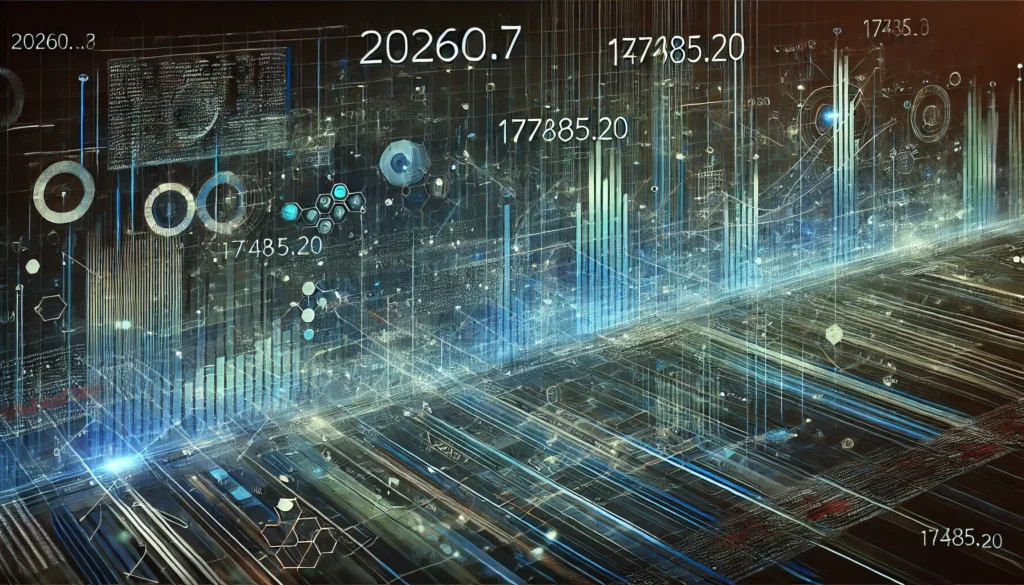What’s Up with 20260.7-17485.20? Real Questions, Real Answers
Starting with the keyword 20260.7-17485.20, you’re probably wondering, “What’s behind this number? Why does it keep popping up?” Whether it’s related to financial benchmarks, stock indices, or even technical data, numbers like this can seem cryptic, but they carry real weight in decision-making.
Let’s break down why figures like 20260.7-17485.20 draw attention and how they impact choices in investing, data analysis, or even budgeting. Stick with me, and let’s make sense of it, one question at a time.
H2: What Exactly Is 20260.7-17485.20?
To kick things off, this number sequence might represent a financial range—such as an index or price movement. If you’ve ever tracked financial data, you know numbers like 20260.7-17485.20 aren’t random. They’re usually tied to changes in stock prices, commodities, or other data with real implications.
For instance:
- Market Trends: Often, these numbers relate to shifts in a market, like the high and low of a stock index. Seeing 20260.7 at one point and 17485.20 at another shows a range where action happened—trading, buying, or even market drops.
- Data Patterns: In sectors like tech or healthcare, such figures can track key shifts in prices or metrics. It’s a number that helps people spot patterns and time their moves right.
Remember: These figures aren’t just for stock traders or economists—they give insights to anyone who wants to make informed financial choices.

H3: Why Should We Care About Ranges Like 20260.7-17485.20?
Good question. Ranges tell a story. They reveal highs, lows, and everything in between. Let’s say you’re thinking about investing, saving, or even budgeting based on market movement. When you see 20260.7 at the top end and 17485.20 at the low end, it shows volatility.
Think of it like weather data:
- High Points (20260.7): Like seeing a record high on a thermometer, a high point suggests peak activity.
- Low Points (17485.20): Similarly, low numbers can signify a cooldown, potentially the perfect time to buy.
Just like watching the weather helps you prepare, watching these numbers can prepare you for the right financial moves.
H2: Practical Ways to Approach Figures Like 20260.7-17485.20
Here are a few ways to make these numbers work for you:
- Use Tools: Platforms like Yahoo Finance or Investopedia let you track numbers like 20260.7-17485.20 in real-time, providing updates on trends.
- Look at Trends: Let’s say you’re using 20260.7-17485.20 in a portfolio analysis. By looking at the range, you can pinpoint high-buy times and low-sell times, boosting returns.
- Compare Data: Are these numbers from last year or last quarter? Knowing time frames can clarify if a pattern will repeat or if it’s a one-time thing.
H3: Can 20260.7-17485.20 Help in Predicting Market Movements?
Short answer? Yes, but only if you read it right.
Numbers like 20260.7-17485.20 can be useful for spotting:
- Trends: If a market consistently hits near these points, you might spot a trend.
- Volatility: Big gaps between the high (20260.7) and low (17485.20) suggest price swings, ideal for seasoned traders looking to make gains on fluctuations.
- Stability: When the numbers stay within a range, it suggests stability—something conservative investors often prefer.
H2: Common Questions About Ranges Like 20260.7-17485.20
Q: How do I know if 20260.7-17485.20 is a good range to buy or sell?
The key is timing. If it’s a high point (near 20260.7), it might be better to sell, while a low (closer to 17485.20) might mean it’s time to buy. This isn’t foolproof, but tracking past patterns often helps predict future moves.
Q: Is there an easy way to keep track of such numbers?
Yep! Financial tools like TradingView and Google Finance let you set alerts for ranges like 20260.7-17485.20, so you’re notified when prices hit your preferred zones.
Q: Can beginners use ranges like 20260.7-17485.20 effectively?
Absolutely. Start by watching the numbers without making big investments. Once you understand the patterns, you’ll have the confidence to act.

H3: Real-Life Example: When 20260.7-17485.20 Made an Impact
Let’s look at a quick story. Suppose an investor, Sam, notices that a certain stock’s range consistently falls between 20260.7-17485.20. Every time it hits 17485.20, it spikes back up to around 20260.7 within a month. Seeing this, Sam times his buy when it’s low and sells when it’s high, pocketing the difference. It’s about riding the wave, knowing when to jump in, and, more importantly, when to step back.
H2: Tips for Using Numbers Like 20260.7-17485.20 to Make Decisions
Consider these tips to get the most out of ranges like 20260.7-17485.20:
- Set Alerts: Use financial apps to notify you when numbers hit specific points in your chosen range.
- Study Patterns: Spend time watching the numbers; you’ll quickly notice patterns.
- Limit Emotional Reactions: Numbers fluctuate. Stick to your strategy, don’t panic at small dips or jumps.
- Use Other Data: Don’t rely solely on the range. Combine it with news updates and other data sources.
H3: Why Are Highs and Lows Important for Any Financial Plan?
Highs and lows show market resilience, people’s buying habits, and economic stability. If 20260.7 is the high, it represents demand. The low, 17485.20, shows a lull but can also signal a good buy point. Understanding this range, whether for stocks, commodities, or investments, can help you buy, hold, or sell smartly.
H2: Wrapping It Up: Using 20260.7-17485.20 to Spot Opportunity
Numbers like 20260.7-17485.20 aren’t just digits on a screen; they’re tools for decision-making. By keeping tabs on highs, lows, and patterns within this range, you can take control of your finances and make informed moves, especially when the stakes are high.
Whether you’re new to finance or a seasoned pro, keeping an eye on ranges like 20260.7-17485.20 helps turn a seemingly random number into a strategic advantage.

